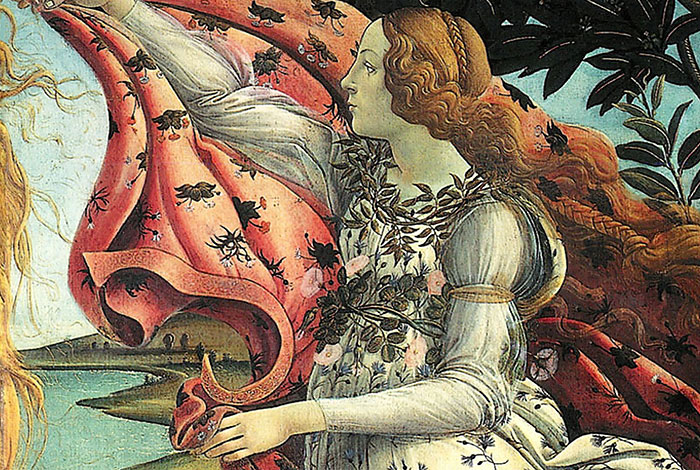
Advocating for Culture: An Analysis of the Interests of Members of Parliament
The results of this analysis will be useful to those who plan to advocate for culture or are already doing so. You will discover which parties support innovative development, and which the protection of the information space and the national product. You will also learn which MPs are the most active authors and co-authors of draft laws.
The Alliance of Culture will continue to raise awareness and consultations so that as many participants in the political process as possible understand the importance of culture and the creative industries. The analysis was conducted within the framework of Culture Matters.
Three Facts about the Work of the Sectoral Committee
The Parliamentary Committee on Culture and Spirituality includes seven members. The most active authors and co-authors of bills on cultural and creative industries are Mykola Knyazhytskyy with 44 bills and Iryna Podolyak with 17 bills.
The main interests of authors of legislative initiatives are related in the main to issues of state support for film production, publishing, protecting the country’s cultural heritage and regulation of radio, television and the information landscape of the country in general.
The results of the analysis show that a key role for advocating the interests of cultural sectors may be played by Mykola Knyazhytskyy, Iryna Podolyak, and Viktor Yelenskyy.
Moreover, the analysis of law-making showed that in advocating for the interests of culture MPs who are not members of the Committee can also play an important role. These are the MPs who were known representatives of culture, art and the media prior to being elected to Parliament: Oksana Bilozir, Vadym Denysenko, Oleksandr Bryhynets, Yevhen Rybchinskyy, among others.
The Interests of Parliamentary Groups in Culture
In this part, we analysed the manifestos of parliamentary parties and groups to determine their interests in the cultural sphere. The data reflects only the officially declared political sentiment but does not show evidence of their influence on cultural issues.
Petro Poroshenko Bloc Solidarity (BPP): In the context of cultural policy, the focus of the party’s programme are innovative development, traditional values and humanities policy.
With regards to innovation, the authors of the programme believe that “the state should promote the entry on the market of products with high added-value content and high-tech products”.
The programme also notes that “a special place in Ukraine’s economy should be occupied by companies from the high-tech field”.
The programme also includes support and development of the national cultural product. A separate item covers modernisation and digitisation of libraries, book collections and archives.
The programme also mentions the following spheres as priorities: cultural diversity, protection of cultural heritage, making Ukrainian the sole state language, ensuring the development of the cultures of national minorities, preservation of cultural traditions and handing them over to future generations.
The People’s Front party’s programme in the context of cultural and creative industries focuses primarily on issues of protection of the information space and building an array of Ukrainian-language cultural products (primarily television-based).
Their programme includes providing comprehensive support to national Ukrainian cultural industries, state protection of all national languages, protection of the information space, and the creation of a competitive media market and strong public media.
The Batkivshchyna party is in favour of maintaining the status of Ukrainian as the sole state language across the entire territory of Ukraine.
In its programme, the Obyednannya Samopomich [Self-reliance] promises to fight for the creation of a knowledge-based economy, move education in the direction of developing creative thinking, the production of innovation, creation of new technologies and a new social reality, prevention of discrimination and barriers, the introduction of long distance forms of employment, accessibility and universality of design to help people with disabilities overcome isolation.
This programme also declares “the combination of science, education and business by creating powerful university-based scientific and educational centres and stimulating scientific research” as well as “liberalisation of tax legislation relating to sponsorship and patronage of education, science, culture and sport”.
Radical Party of Oleh Lyashko: The party’s manifesto does not touch upon issues of culture.
In its programme, the Revival party covers tax exemption for patronage-related contributions to cultural projects; the possibility of communities to independently determine the priorities of cultural traditions and preservation of monuments; full enforcement of the rights of religious communities and the promotion of construction of religious buildings.
People’s Will parliamentary group: Cultural issues are virtually absent in the programme. The group’s political sentiment on issues of cultural policy is reflected by MPs Yevhen Rybchynskyy and Mykhaylo Poplavskyy.
Opposition Bloc: Cultural issues are virtually absent from its programme.
The Opinions of MPs on the Significance of Culture and Advocacy
The study notes that the stance of MPs on developing culture and support for the creative industries is not determined solely, and as much, by the programme of the political force they represent. A leading role is played by the “human factor”, i.e. whether each individual MP understands the importance of such support and the depth of his/her interest in cultural issues. Activists planning to conduct advocacy campaigns should factor this in.
To illustrate this, we provide the opinions of several MPs representing different political forces below.
Vadym Denysenko, Verkhovna Rada MP
“The programme of political powers cannot be the sole point of reference for activists planning an advocacy campaign. When analysing the positions of stakeholders (for example, MPs), a wider perspective is necessary. In particular, regarding the legislative activity of a particular MP, his/her public statements and so on. This would allow more accurate identification of potential like-minded people and, consequently, it will be easier to obtain their support.”
Vasyl Hatsko, Co-Chairman of Democratic Alliance
“The creative economy is part of the most profitable sectors of the economy and wields significant influence on the growth of the country’s GDP. In addition, it creates intangible values that make a significant contribution to ensuring sustainable people-centred development.
“As a creator of jobs, culture fulfils an important function in improving the wellbeing of society, offers an opportunity for self-expression, and is one of the important incentives for the younger generation to live and work solely in Ukraine. Culture also promotes self-esteem in individuals and helps to improve the quality of life in general. Thus, the creative economy is one of the factors of inclusive and sustainable development.”
Ihor Lutsenko, Verkhovna Rada unaffiliated MP
“For me, cultural policy is one of the most important issues, at least, with regard to the preservation of cultural heritage. Because in many ways Ukraine is now not so much a state-centred space as much as it is communicative, as well as cultural, space. Without culture, there are no people. Technological advances have not only made life more convenient, and the weapons of murder more powerful, but also greatly facilitated the loss of human identity and even individuality. Therefore, to remain human, we should hold onto our own culture significantly more firmly and more consciously than we did before.”
The article was drawn up in cooperation with the EU-Eastern Partnership Culture and Creativity




